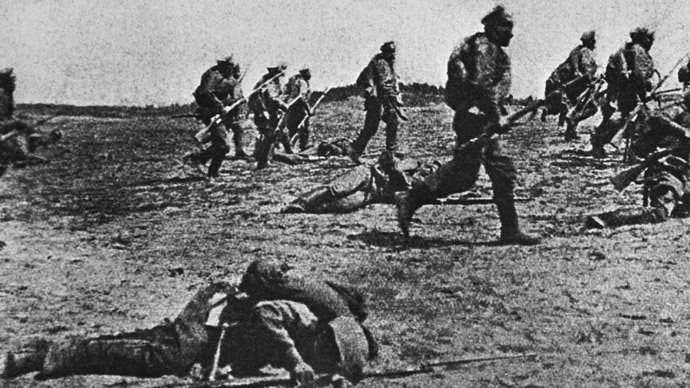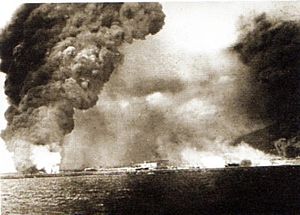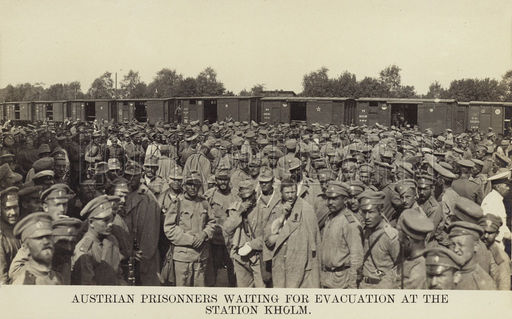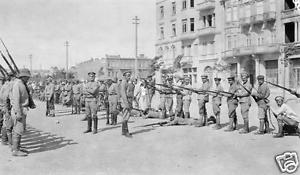On Russian Front, German Eyes Set on Petrograd
The Kaiser Celebrated with Champagne
Special to The Great War Project.
(25 February) It’s a crucial moment in the war for all sides.
The peace treaty that ended the war between Germany and Russia fundamentally redrew the map of Europe.
“The Bolsheviks, led by Lenin,” reports historian Martin Gilbert, “gave up all claims to the Baltic provinces (Latvia, Estonia, Lithuania), Poland, Byelorussia, Finland, Bessarabia (now Moldova), Ukraine, and the Caucasus.”

The Russian Battlefield near Petrograd.
Then, a century ago, “the Germans looked set to enter Petrograd,” the Russian capital.
“In their rapid and virtually unopposed advance,” reports Gilbert, “they had captured 63,000 Russian prisoners, 2,600 artillery pieces, and 5,000 machine guns. The weapons would be of great value to them on the Western Front.”
Finally, Russia signs a formal piece treaty with Germany. “The Bolsheviks accepted the harsh reality of the battlefield,” that they could no longer resist.

Battle for the Black Sea
“The German high command was relieved,” Gilbert writes, “it was eager to turn Germany’s military might against the Western Front.”
There is much talk now of an imminent German offensive on the Western Front. The Germans think they can finish this war before the waves of American soldiers hit the battlefield.
Now Russia as an empire — indeed Russia as a nation — may not have a future.
According to historian Gilbert, the territory Russia has been forced to give up “constitutes a third of its pre-war population, a third of its arable land, and nine-tenths of its coalfields.”
“Almost all the territory, in fact,” Gilbert observes, “that had been added to the Tsarist dominions since the reign of Peter the Great more than two hundred years earlier.”
Nearly all of Russia’s naval bases are turned over to the Germans. The Russians lose their naval bases in the Black Sea, and in the Baltic Sea.
Writes Gilbert, “The Kaiser celebrated with champagne.”
The Russians are to release 630,000 Austrian prisoners-of-war that they hold.

Austrian prisoners of war.
One other development that will echo down through the years. Russia agrees to turn the Armenian territories it conquered earlier in the war to Turkey, now the remnants of the Ottoman Empire.

Armenian troops in drills, 1918,
“The inhabitants of Germany’s other major ally, Ottoman Turkey, are suffering near starvation,” writes historian Adam Hochschild. Many Turkish soldiers are deserting, effectively taking the Ottomans out of the war.
Lenin surveys Russia’s circumstances. Fearing that the Germans will seize Petrograd, the Bolsheviks hold an urgent meeting of their leadership, and decide to move their capital city to Moscow.
Soon the Germans will occupy Odessa, in Ukrainian territory on the Black Sea.
As historian Gilbert observes, “For the first time in history, one power’s control of Europe stretched from the North Sea to the Black Sea, something even Napoleon had not achieved.”
“The German triumph in the East was unprecedented and complete.”
And now the Germans turn to preparations for a massive offensive, one that will destroy the British and French armies – before the Americans get to the Western Front in large enough numbers to make a difference.
